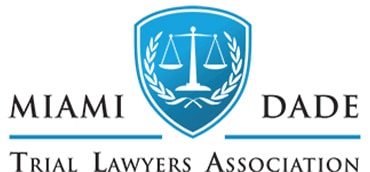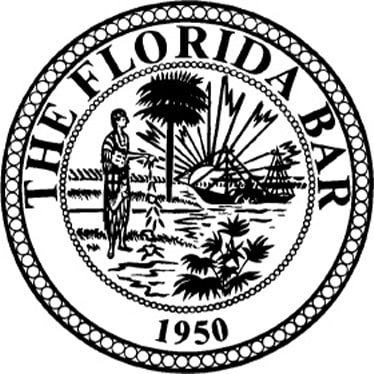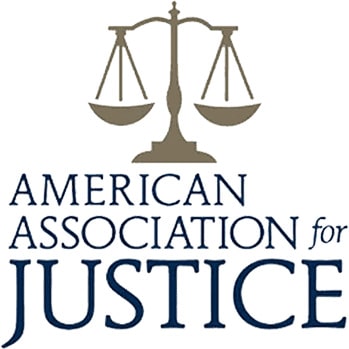If you’ve had the misfortune of an electrical fire in your rented accommodation, you might be pondering, ‘Can I sue my landlord for electrical fire?’ The answer lies in the specifics of your situation. This article will guide you through the necessary criteria for litigation, such as proving landlord negligence and documenting the link between their oversight and the fire. Gain insight into your legal rights, the evidence you’ll need, and the potential for financial compensation with the keyword “can I sue my landlord for electrical fire” in mind.
Key Takeaways
- Landlords are legally obliged to maintain safe, habitable properties free from electrical hazards, including up-to-date electrical systems to prevent fires.
- Tenants have the right to sue for damages from electrical fires if they can prove landlord negligence, which includes failure to maintain electrical systems or comply with fire safety codes.
- Preventative measures are recommended for tenants, and in the event of an electrical fire, working with an attorney and having renters insurance can provide necessary support and coverage.
Understanding Electrical Fires in Rental Properties
Electrical fires, such as an apartment fire, are a nightmare no tenant wants to experience. Unfortunately, they are a common occurrence in residential fires, often resulting from faulty wiring or outdated electrical systems. These fires are not random accidents; they are usually a result of negligence or disregard for the upkeep of electrical systems, particularly by landlords.
You might be wondering, “How do I know if my rental property is at risk of an electrical fire?” Some indicators of potentially dangerous electrical systems include:
- frequent power surges
- circuit breakers that consistently trip
- overheated outlets
- the age and deterioration of electrical systems
- incorrect installation of appliances
- the age of the wiring system
The causes of electrical fires, often related to electrical wires, are significant contributing factors to these incidents.
In many cases, these problems arise due to landlords failing to upgrade or properly maintain electrical systems. In other words, the risk of electrical fires in rental properties is often directly linked to the actions, or inactions, of property owners.
 Tenant Rights and Landlord Responsibilities
Tenant Rights and Landlord Responsibilities
As a tenant, you have the right to live in a safe, habitable property. This includes a home free from electrical hazards. It is the landlord’s legal obligation to ensure the safety of the property’s electrical wiring and systems. This goes beyond simply providing a roof over your head. It extends to the upkeep of electrical wiring and addressing other potential electrical issues.
Failure to invest in regular updates and maintenance of rental properties’ electrical systems can lead to preventable damages to tenants’ lives and property. Landlords must:
- Provide enough electrical outlets in every room
- Use GFCI outlets where there is a risk of moisture to prevent overloading and electrical hazards
- Restore electrical service within a reasonable amount of time if there is an outage
Regular Inspections and Maintenance
Regular inspections and maintenance of rental properties are crucial in mitigating the risk of electrical fires. Landlords are obligated to conduct these inspections, as early detection of electrical issues can prevent catastrophic events. But it’s not enough to simply conduct these inspections; they must be done by a certified professional to ensure a thorough evaluation and adherence to electrical safety standards.
In addition to regular inspections, landlords also bear the responsibility of ensuring that electrical appliances are correctly installed and maintained to prevent electrical hazards. Special attention should be paid to electric wiring, with any dangers such as those presented by aluminum wiring, being addressed promptly.
Compliance with Fire Safety Codes
Landlords are not just responsible for maintaining electrical systems. They also need to ensure that their properties comply with fire safety codes and have adequate fire safety systems in place. This includes the installation and routine testing of smoke alarms and, when applicable, carbon monoxide detectors. These measures are not optional; they are legally mandated to protect tenants from potential fire hazards.
Another key element in minimizing the risk of electrical incidents is the use of Ground Fault Circuit Interrupter (GFCI) outlets and proper installation of light switches. These outlets rapidly interrupt the power flow in the event of a ground fault, preventing severe electrical shocks and reducing the risk of electrical fires.
Establishing Landlord Negligence in Electrical Fires
So, what happens when a landlord fails to fulfill these responsibilities, leading to an electrical fire? This is where the concept of landlord negligence comes into play. Landlord negligence is established when the landlord fails to act with due care, leading to an unsafe and uninhabitable property. But how do you prove this in the context of an electrical fire?
Proof of landlord negligence requires demonstrating a breach of duty and causation. This means showing that the landlord was aware of an electrical hazard and did not take appropriate action, or the action taken was inadequate, which then led to a fire. Evidence supporting a claim of landlord negligence may include:
- Witness testimony
- Maintenance records
- Building code violation notices
- Proof from professionals that outdated or insufficient wiring caused the fire
In past cases, landlords have been found negligent for failing to address electrical issues such as faulty wiring, which showed a direct breach of legal duty to maintain a safe environment.
Contact us today for your free & confidential case review. Our team will help you get the compensation that you deserve.
Legal Actions Against Negligent Landlords
So, what legal avenues are open to you as a tenant if your landlord’s negligence leads to an electrical fire? You have the right to sue your landlord for damages if you can demonstrate that the landlord’s negligence was the cause of the fire, which may involve providing electrical fire liability. This involves proving a breach of the landlord’s required duty, such as:
- Failing to maintain the property’s electrical systems
- Ignoring or failing to address known electrical issues
- Not hiring a qualified electrician to inspect and repair electrical problems
- Failing to provide proper fire safety measures, such as smoke detectors and fire extinguishers
The journey to holding a negligent landlord accountable doesn’t end there. Let’s delve into the intricacies of filing a lawsuit and seeking compensation.
Filing a Lawsuit
Initiating a lawsuit against a landlord for an electrical fire starts with filing a complaint with the appropriate civil court. This complaint should detail the allegations against the landlord and specify the damages sought, adhering to the formal requirements of the court.
The steps to initiate a lawsuit are as follows:
- File a complaint with the appropriate civil court.
- Detail the allegations against the landlord and specify the damages sought.
- Adhere to the formal requirements of the court.
- Pay the filing fee (if required), or apply for a fee waiver if you qualify as a low-income tenant.
Once the complaint is filed, the landlord must be served with a copy of the lawsuit, typically executed by a process server or law enforcement officer. Then, the landlord has a limited time to respond to the lawsuit, either by answering the complaint, moving to dismiss it, or possibly by proposing a settlement. If the case proceeds, both sides prepare for court appearances that involve pre-trial conferences, discovery, and potentially, a trial before a judge or jury.
Throughout this process, the tenant must collect and present evidence to prove the landlord’s negligence caused the fire, such as inspection reports or testimony from electricians. The burden of proof lies with the tenant to show that the landlord’s actions were a breach of duty that led to the fire, causing the tenant’s losses.
Compensation and Damages
Once you’ve filed a lawsuit and successfully proven landlord negligence, it’s time to focus on compensation and damages. Tenants who prove landlord negligence in an electrical fire may be eligible for economic, non-economic, and sometimes punitive damages.
Compensation for victims of electrical fires can cover losses such as property damage, medical expenses, and the loss of possessions, including pets and loved ones. Attorneys can help prove the extent of damages caused by electrical fires, thereby aiding tenants in receiving comprehensive compensation that includes economic, non-economic, and punitive damages.
Preventive Measures for Tenants
While it’s crucial to know your legal rights and options after an electrical fire, prevention is always better than cure. There are several measures you can take as a tenant to minimize the risk of electrical fires in your rental property.
For example, be aware of the risks posed by pests, like roaches, to electrical wiring insulation, which can lead to faults and fire hazards. Also, if your rental property has aluminum wiring, be informed about the overheating risk it poses, as this can lead to fires. Moreover, check for worn electrical outlets – exposed prongs can be a fire hazard for children, pets, and nearby flammable materials.
Understanding grounding in electrical systems is also crucial, as it serves to protect sensitive equipment and the overall safety of the home. Lastly, always verify that smoke alarms in your rental property are regularly tested and replaced before expiration by your landlord, as part of their fire safety measures.
Working with an Attorney
 Navigating the aftermath of an electrical fire and potentially initiating legal action against your landlord can be daunting. That’s where an experienced personal injury attorney comes in. They ensure that tenants have the legal understanding necessary to:
Navigating the aftermath of an electrical fire and potentially initiating legal action against your landlord can be daunting. That’s where an experienced personal injury attorney comes in. They ensure that tenants have the legal understanding necessary to:
- Understand their rights as tenants
- Gather evidence to support their case
- File a lawsuit against the landlord if necessary
- Negotiate a settlement or represent them in court
An attorney can help tenants hold the property owner accountable following an electrical fire.
Attorneys play a crucial role in gathering solid proof of the landlord’s responsibility for the electrical fire. They can also aid in the recovery of the full amount of damages owed to the tenant, including medical bills. A law firm like Mausner Graham Injury Law would fully investigate the incident, gather evidence, and provide qualified guidance throughout the legal process.
Insurance Claims and Renters Insurance
Insurance plays a significant role in covering damages and losses from electrical fires. However, it’s essential to understand the differences between landlord insurance and renters insurance to know what is covered and what isn’t. Landlord insurance policies typically cover damages that are sudden and accidental caused by tenants but exclude coverage for tenants’ personal belongings in incidents like fires. Additionally, landlord insurance may provide rental income protection to cover lost income if the property becomes uninhabitable due to repairs following a covered loss.
On the other hand, renters insurance is crucial for tenants as it protects their personal belongings and offers liability coverage, but it does not include the rented dwelling itself. It’s important to note that landlords may still be held liable for damages if the insurance company does not cover the full extent of losses following an electrical fire, highlighting the need for adequate coverage.
Tips for Choosing a Qualified Electrician
Landlords bear the responsibility of ensuring electrical safety in their rental properties. This includes hiring only licensed electricians to perform electrical work. But how does a landlord choose a qualified electrician?
Selection of an electrical contractor should factor in their organizational skills and use of estimating software for accurate cost and schedule projections. Checking online reviews from renters and landlords can gauge the reliability and quality of an electrician’s work. Word-of-mouth referrals offer personal testimonials that can verify an electrician’s capability and performance history. Investigating an electrician’s experience with various property types, especially rental properties, and any specialties they may possess can assure their suitability for the required electrical work.
Frequently Asked Questions
What are some common causes of electrical fires in rental properties?
What responsibilities do landlords have in terms of electrical safety?
How can I establish my landlord’s negligence in an electrical fire?
What’s the difference between landlord insurance and renters insurance?
The main difference between landlord insurance and renters insurance is that landlord insurance covers damages caused by tenants, while renters insurance protects tenants’ personal belongings and offers liability coverage.
Last updated Monday, July 22nd, 2024












